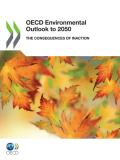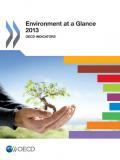The Design for Sustainability (D4S) concept outlines methodologies for making sustainable improvements (social, economic and environmental) to products by applying elements of life cycle thinking. D4S builds on the work of ecodesign to include economic and social concerns, and its methodology includes both incremental and radical innovation. The United Nations Environment Programme and the Delft University of Technology, the Netherlands, in concert with key partners, work to support, illustrate, and diffuse targeted D4S demonstration efforts, including the European Commission-funded Cleaner Production for Better Products project in Vietnam, that are needed to change unsustainable consumption and production patterns.
The document provides guidance principles for Life Cycle Assessment (LCA) databases; this includes how to collect raw data, how to develop datasets and how to manage databases. The publication also addresses questions concerning data documentation and review, coordination among databases, capacity building and future scenarios. LCA databases provide fundamental energy, materials, land, water consumption data and emissions data into water, air and soil for a wide range of processes, products and materials. In this way, the publication provides the bridge between the data users and the data providers, making basic information easily accessible for computing the environmental footprints of materials and products that are key to make and judge green claims and to allow institutional and individual consumers to make informed consumption choices.
The document is the output of the UNEP/SETAC "Global Guidance for LCA Databases" workshop, (30 January - 4 February 2011, Shonan, Japan), also known as the ‘Shonan Guidance Principles’ workshop.

Based on joint modelling by the OECD and the Netherlands Environmental Assessment Agency (PBL), this document looks forward to the year 2050 to find out what demographic and economic trends might mean for the environment if the world does not adopt more ambitious green policies. It also looks at what policies could change that picture for the better. This Outlook focuses on four areas: climate change, biodiversity, freshwater and health impacts of pollution, identified as 'red light' issues by the previous 'Environmental Outlook to 2030' publication. This summary was prepared by Eldis.
The Netherlands National Committee IHP-HWRP, together with the Netherlands National Commission for UNESCO, has published a new (fourth) publication in their series of water-related UNESCO publications: «Green growth and water allocation». Edited by Sophie Primot, Michael van der Valk and Penelope Keenan, the publication contains contributions from many of the speakers of a 2-day workshop held in November 2012 in Wageningen, the Netherlands.

This book includes key environmental indicators endorsed by OECD Environment Ministers and major environmental indicators from the OECD Core Set. These indicators reflect environmental progress made since the early 1990s and thus contribute to measuring environmental performance. Organised by issues such as climate change, air pollution, biodiversity, waste or water resources, they provide essential information for all those interested in the environment and in sustainable development.
